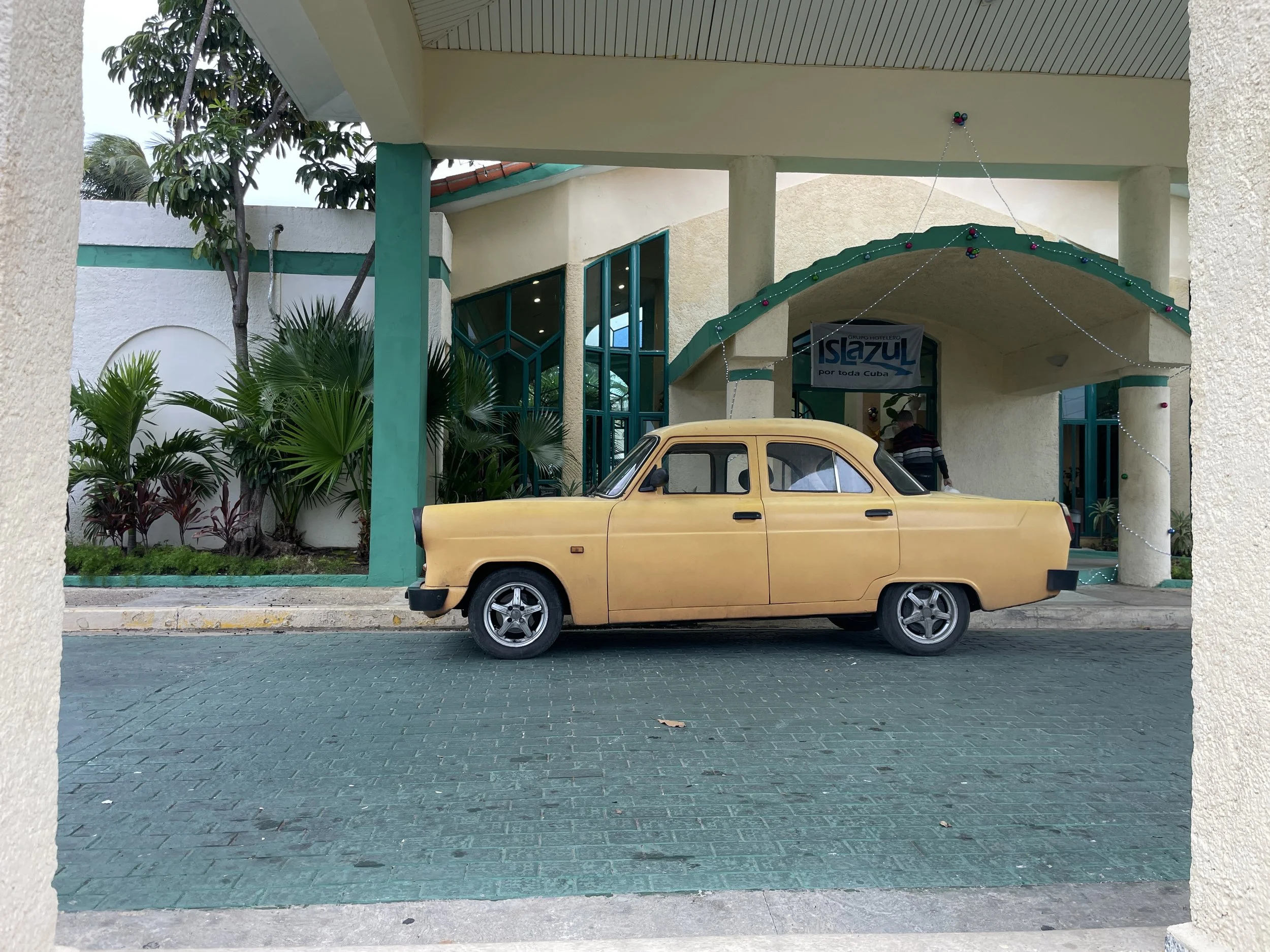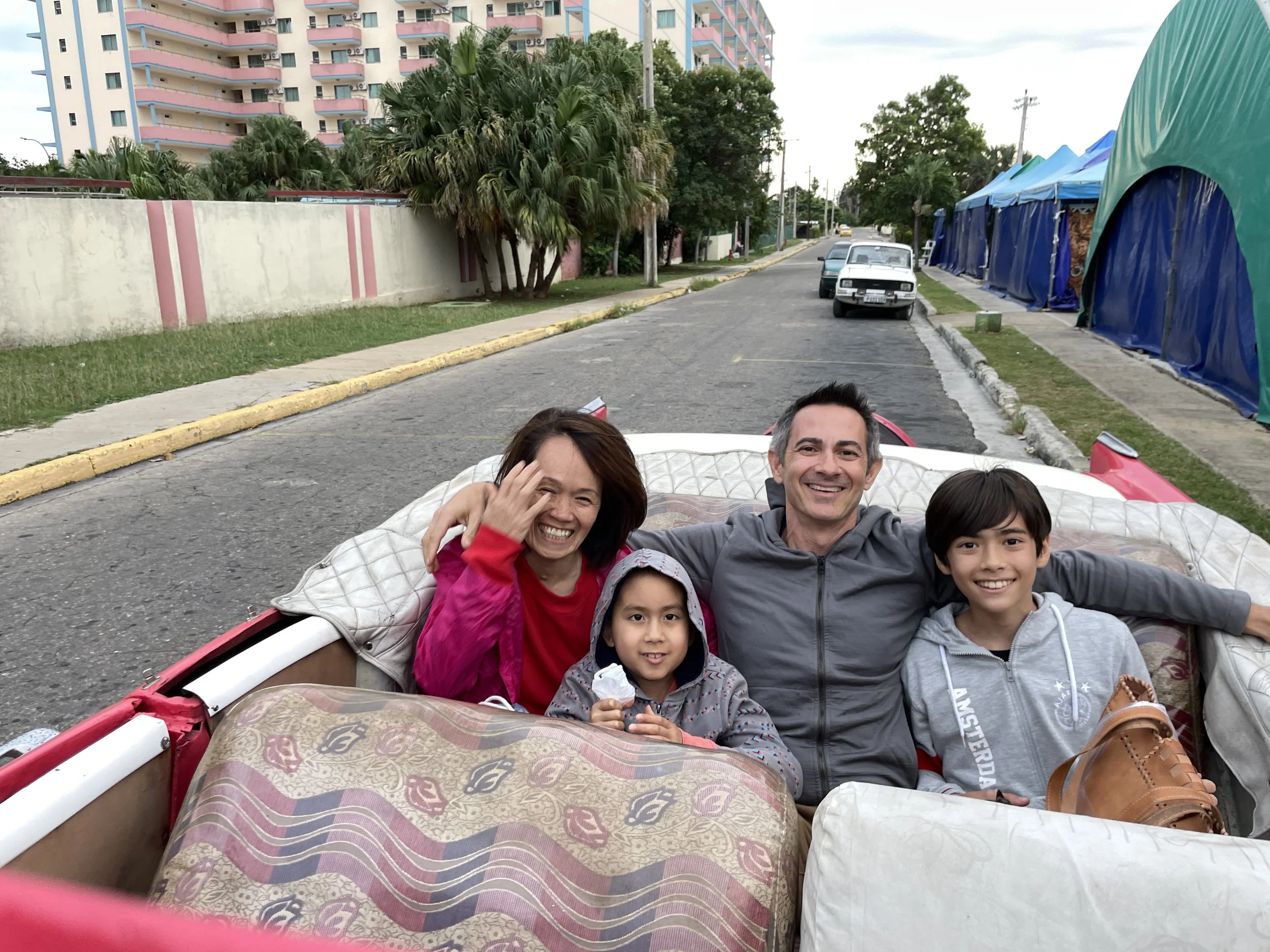Havana, Cuba, December 2022
Note that the question is not “Can we go to Cuba right now?” We can go to Cuba under most of the previous laws, including “Support for the Cuban People.” We can even fly direct to Cuba from many US cities. The question is, “Should we go?” We (AEA) get this question from time to time, and I personally have mixed feelings about it.
The CONS are what you hear in the news: electricity shortages, water shortages, food shortages, crime on the rise. From personal experience, I can vouch for most of these. I was last in Cuba in 2022/2023 with my family. This was the 3rd time with my family and my fourth time, including once in 1997, during a very dark time for Cuba with massive food and fuel shortages. 2022/ 2023 bore a striking resemblance to 1997. In fact, I’d say 2022/2023 was much worse:
More people had fled this time. A LOT MORE. Estimates are between 1-2 million. MILLION. That’s 10-20% of Cuba’s population. And they were the ones with the means to do so, often with the education and know-how to sustain the country. I met several people who told me stories of people leaving by boat - or foot (after buying a one-way ticket to Nicaragua for $3,000). And others who planned to leave. One couple selling souvenirs in the market told me they were trying to get enough dollars to follow their son to the U.S. The cost was about the same no matter which option you chose: around $13,000.
Was that one of the main reasons for the massive devaluation of the Cuban Peso? Everyone leaving? Desperation was so high that people were selling their homes for cheap, and practically giving pesos away. In 1997, the official and black market exchange rate was 24 pesos per $1 USD, and a taxi ride almost anywhere in Havana was $1. In 2016, the dollar was worth 10% less and prices were higher, but the official rate was the same. By 2022, the black market exchange rate was 160-180 pesos per dollar. By 2023, the black market exchange rate was 250 pesos per dollar. Now it’s around 325.
I saw food scarcity in action in 2022/2023. A retiree’s 1500 peso monthly pension was almost worthless, enough to buy a bit more than the 3 dozen eggs he bought for 1200 pesos, when he could find them. Most restaurants were out of eggs and running low on chicken and pork, both of which had doubled and tripled in price. My friend in Vinales was driving to Havana to buy a pig and chickens. I saw a boat that supplied electricity without anyone to operate it. Electricity went out on us a few times in 2022/2023. In 2024, friends of mine in Vinales were frequently without electricity. I paid $1800 USD to buy them a generator that would have cost about $500 here in the US.
Crime was on the rise. I heard it firsthand from my guide friend and a taxi driver, who told us he had been held up with a home-made gun. Not even petty crime had been an issue in 97 from what I had seen or heard. In 2022/ 2023, I gave a mother and child our leftovers one night in Havana, and the boy touched his heart and shook my hand. I had never seen hunger in Cuba before this. And I had been around.
So, when I think about going to Cuba under these conditions, I do wonder if I should go, and if we should send groups. Since COVID, we (AEA) have been very forthright with inquiries. We don’t really recommend going to Cuba unless you understand the situation. Furthermore, there is always the chance that the situation will worsen and / or that the US government will ban travel entirely. Most people we speak to decide to go to another location.
Having said that, let’s consider the PROS:
You’re going to meet fantastic people, who generally are going to tell you that they want you to come to Cuba, that they still rely on tourism to make money, and that in Havana at least, things are mostly OK. To note, there are several large events scheduled in or near Havana this year and next, including two chess tournaments, the 40th Havana Jazz Festival, the 25th Habanos Festival and a Cuban Dance Festival.
One of our partners in Cuba tells us things are “fine” in Havana. My friend in Vinales says they have had one guest in their Airbnb all year and they need more. They had to sell some of their land to pay for gas for the generator. I asked why not just sell the generator if gas was so expensive. They said they needed electricity more than anything else to keep the fans on, to keep the food from spoiling, to keep lights on, to cook food and boil water when gas is in short supply.
I know some companies are still sending lots of large groups. I met someone at a conference who said they send 40-50 groups to Cuba each year. Is that part of the solution or part of the problem? It may very well be both, depending who you ask. But the people we ask should be the Cuban people, right? And if they say to come, should we still go, even though there are shortages of food and electricity- that we would be using?
In 1997, I had no clue that Cuba was just starting to come out of a really, really tough period after Soviet support ended. I didn’t know at that time that Cubans could hardly find - or afford - meat to eat, that they were selling gasoline out of the back of their cars, along with other supplies. I also had no idea that my stay there would teach me so much about Cuba, bring me so close to the Cuban people, and “The Embargo.” I did not know that my four visits would be some of the greatest cultural and educational experiences of my life and that Cuba would become one of my favorite places in the whole world.
And yet, given what I do know now, I’m torn about going to Cuba with my family, or sending groups there, so unsure about it that I’m thinking of going back, without my family this time, to have a look around and see how things really are for myself. Not only are friends and business partners saying to come - and please bring groups; there are 1-2 million less Cubans in Cuba than there were just a few years ago.
Maybe the thought that we will use too many resources is outweighed by the fact that so many Cubans have left, and the resources that we can bring in our suitcases, and in our wallets. Each year we have traveled to Cuba as a family, we have brought with us loads of medicine, eye glasses, clothes, baseball gloves, toys, spices, chess boards) - and the dollars that we spend there. After all, is that not “Support for the Cuban People”?
What do you think? Would you take a group of college students to Cuba right now? Would you want to go as an individual? Politics aside, what do you think is the right thing to do?
Support for the Cuban People



